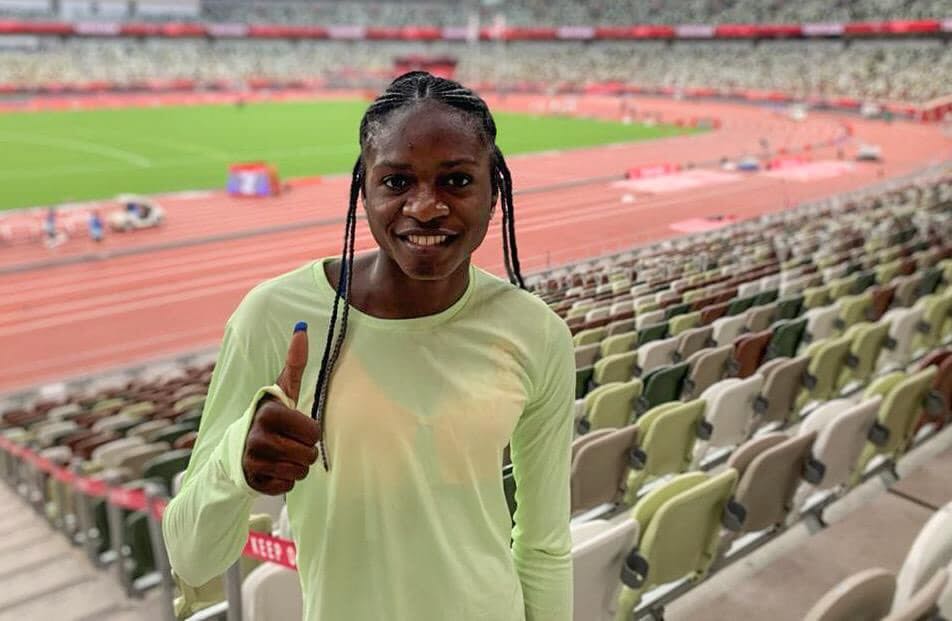As the dust settled on a modest Namibian showing at the Paris Olympics, the nation can be forgiven for imagining how things would have gone if generational talents Beatrice Masilingi and Christine Mboma competed.
After American ace Gabby Thomas secured gold in her 200m sprint at the Olympics, many Namibians wondered if the outcome would have been different if Mboma had competed.
One of those was sport commentator Isack Hamata.
“Such a painful thing we went through as Namibians when Gabby Thomas won that gold because in Tokyo, Christine came from behind to snatch that silver medal from the claws of Gabby Thomas’ hands,” Hamata said when speaking to Desert Radio recently.
He pondered whether Mboma would ever get to the same level of performance after her hormone therapy.
The Namibian did not race competitively for 20 months after a change to the rules for athletes classed as having differences in sexual development, coupled with recurring injuries.
Hamata reflected on the psychological toll that Mboma’s situation may have taken on her, especially in light of her missed opportunity to compete at her best.
“We will never know whether she will ever be able to get back to the old Christine that we know. It’s very painful to see that we have subjected our young girl to this. We now just need to make sure we deal with the psychological aspect of things,” he said.
Despite recent setbacks, coach Henk Botha encourages Namibians to look ahead, emphasising that Mboma’s career is far from over.
“I don’t think they destroyed their [Mboma and Masilingi] careers, they just put a huge challenge in front of them,” Botha says.
“Being on a track, I know these athletes are highly qualified, they still have their speed, they still have their talent. We just need to look at different ways to prepare them than in the past.”
Botha says the timing of Mboma’s return to competition was not ideal.
“Christine had three months to qualify, within those three months she had those huge injuries and we literally had less than a month to prepare to qualify, and being on an international stage, you don’t qualify in a month,” Botha says.
“We must write the books, we must write the history. I told them that we have to be competitive in Japan next year and at the world championship. We set down a plan and commitments, and both of them are very eager.
“As soon as the first of September, we will start our preparations, and if everything goes to plan and we don’t have injuries, our plan is to qualify in February and just prepare for the world champs in August,” he says.
Physiotherapist Munashe Chinyama acknowledges the challenges posed by the hormone therapy, but emphasises that not all hope is lost.
“The fortunate thing is that Christine still has age on her side; it cannot be denied that she was hugely disadvantaged by this hormone therapy. For them saying she has an unfair advantage, the flip side is that the hormone therapy was actually an unnatural means to control her levels of testosterone, which was very unfair,” Chinyama says.
“There’s still is a chance for her to adjust. When you are young, your body can still adjust, it just takes time. We probably rushed her to go back. With four years again, looking forward to 2028, there is still a chance for her to get back,” he says.
As Namibia looks to the future, the call for better preparation and investment rings clear for all athletes.
Sport journalist Hesron Kapanga believes long-term investment is crucial for success.
“We must invest in the four-year period instead of us just coming two months before the time and expecting to qualify,” Kapanga says.
“I was happy Christine did not qualify because we were going to put a lot of pressure on coach Henk and Christine, not knowing that the other people had years to prepare properly. I believe it’s all about investment for me,” the scribe continues.
“Botha also highlighted the financial struggles faced by Namibian athletes, contrasting their situation with that of their peers in other countries.
“Somebody like Helalia is at the end of her career. If you look at other athletes who have competed as much as she did, they are financially set. But our athletes, who give their lives for their country, are not sorted after,” he says.
Stay informed with The Namibian – your source for credible journalism. Get in-depth reporting and opinions for
only N$85 a month. Invest in journalism, invest in democracy –
Subscribe Now!






